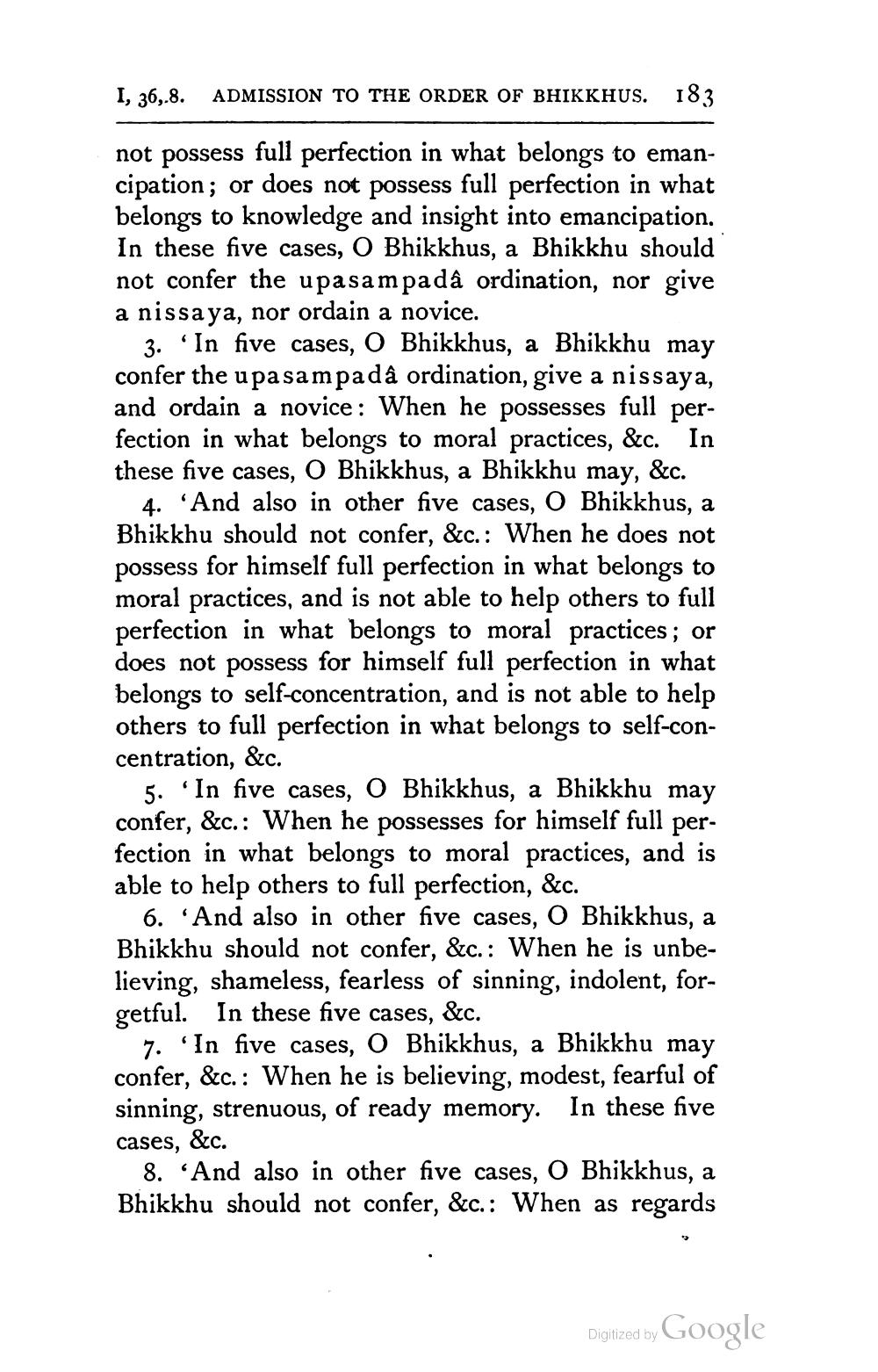________________
I, 36,8. ADMISSION TO THE ORDER OF BHIKKHUS. 183
not possess full perfection in what belongs to emancipation; or does not possess full perfection in what belongs to knowledge and insight into emancipation, In these five cases, O Bhikkhus, a Bhikkhu should not confer the upasampadâ ordination, nor give a nissaya, nor ordain a novice.
3. “In five cases, O Bhikkhus, a Bhikkhu may confer the upasampadâ ordination, give a nissaya, and ordain a novice: When he possesses full perfection in what belongs to moral practices, &c. In these five cases, O Bhikkhus, a Bhikkhu may, &c.
4. 'And also in other five cases, O Bhikkhus, a Bhikkhu should not confer, &c.: When he does not possess for himself full perfection in what belongs to moral practices, and is not able to help others to full perfection in what belongs to moral practices; or does not possess for himself full perfection in what belongs to self-concentration, and is not able to help others to full perfection in what belongs to self-concentration, &c.
5. In five cases, O Bhikkhus, a Bhikkhu may confer, &c.: When he possesses for himself full perfection in what belongs to moral practices, and is able to help others to full perfection, &c.
6. 'And also in other five cases, O Bhikkhus, a Bhikkhu should not confer, &c.: When he is unbelieving, shameless, fearless of sinning, indolent, forgetful. In these five cases, &c.
7. 'In five cases, O Bhikkhus, a Bhikkhu may confer, &c.: When he is believing, modest, fearful of sinning, strenuous, of ready memory. In these five cases, &c.
8. And also in other five cases, O Bhikkhus, a Bhikkhu should not confer, &c.: When as regards
Digitized by Google




